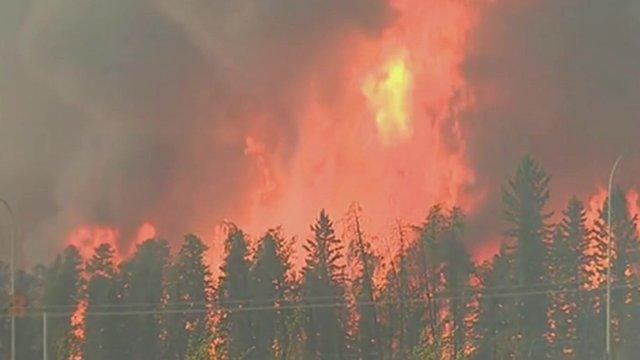Canada wildfire: Much of Fort McMurray 'could be destroyed'
- Published
One resident of Fort McMurray said she had lost everything
A massive wildfire that has forced the evacuation of all 88,000 people from Fort McMurray could destroy much of the Canadian city, local officials warn.
The officials in Alberta province say the blaze that has gutted some 1,600 structures is expected to rage out of control through the rest of Wednesday.
A state of emergency has now been declared in the province.
The evacuation was the largest in Alberta's history. So far there have been no reports of injuries.
The blaze broke out south-west of the city on Sunday. Firefighters appeared to have a measure of control by Tuesday until a drastic wind shift overwhelmed them.
'Catastrophic fire'
"Bad news does not get better with time," said Scott Long, executive director of Alberta's Emergency Management Agency.
"It is a possibility that we may lose a large portion of the town," he added.
Fire services said high winds and hot temperatures would make Wednesday an "even worse day" than Tuesday.
Bernie Schmitte, an official at Alberta's Agriculture and Forestry Ministry, said the "catastrophic fire" had so far "resisted all suppression methods".
After flying over the burning city, Alberta Premier Rachel Notley said the blaze had moved north and east across Fort McMurray.
If the winds behaved as predicted, she added, the blaze would move into the Thickwood and Timberlea communities, as well as the area around the airport.
Officials said the size of the blaze was now 7,500 hectares (29 sq miles) and it was being tackled by 100 firefighters. Wednesday would "again create explosive conditions", they said.
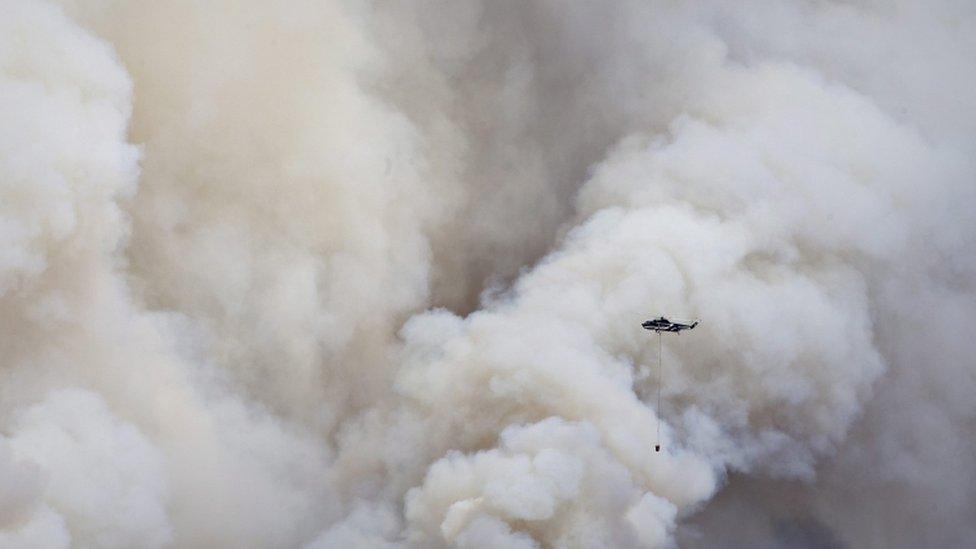
Helicopters are helping battle the wildfire and more reinforcements are on the way

Children are buckled into a car for a speedy evacuation
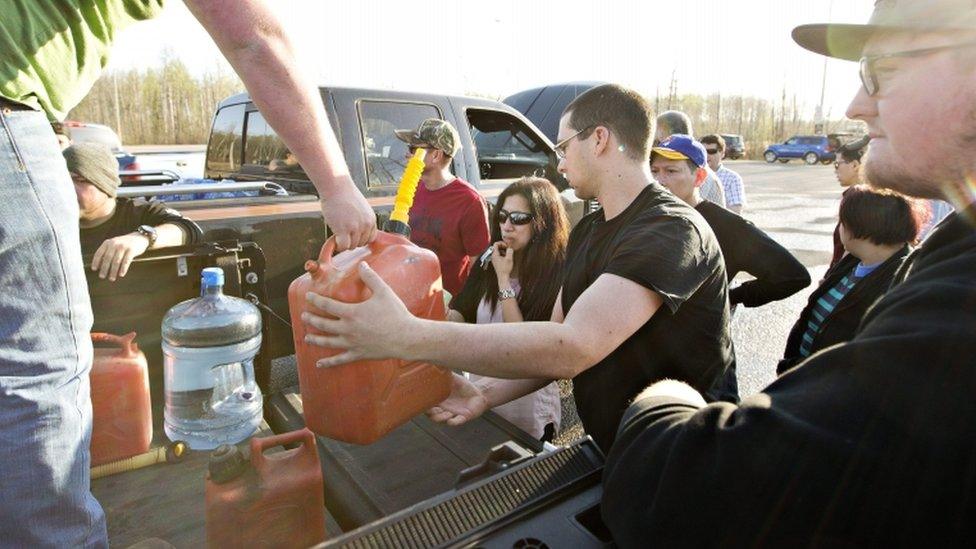
Fuel is handed out to evacuees. There is none left in Fort McMurray
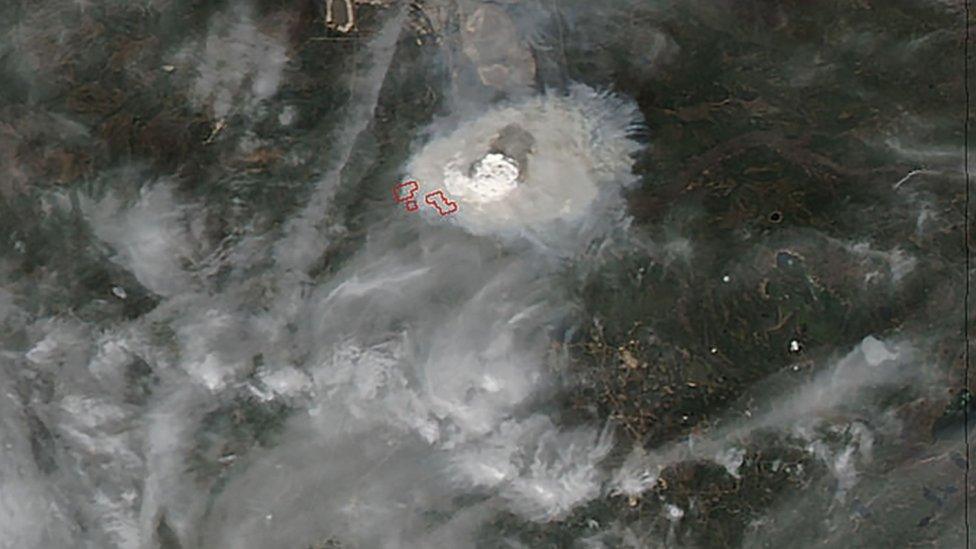
Nasa has released satellite images of the raging wildfire
Help from the army and air force is being sent to Fort McMurray but may take two days to arrive.
The chief of Fort McMurray's fire department, Darby Allen, said: "It's a nasty, ugly fire and it's not showing any forgiveness."
He said staff had worked through the night and all structural fires within the city were extinguished, but he added that other areas were still at risk.
"This fire will look for them and it will find them, and it will try to take them. And our challenge today is to try to prevent that," he said.
The latest update, at 18:30 GMT, external, said that the Waterways district had lost 90% of its homes, with 70% lost in Beacon Hill and 50% in Abasand.
A CTV reporter in Beacon Hill said there was almost nothing left. "It's just blocks and blocks of soot, basically," she said.

A terrifying experience: Szymon Bicz, eyewitness
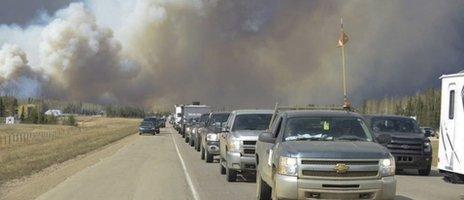
"I'm on the road to Edmonton, after managing to escape Fort McMurray in a hurry. It's chaos here. Everyone has been advised to evacuate immediately. The roads are gridlocked.
The smoke was really overpowering. It was a terrifying experience. I was at work listening to the radio for updates, where they were saying it was contained initially.
Then it spread really rapidly. I drove back to my house and grabbed my passport and some clothes and started driving out of town with a colleague. My family have not moved over yet from the UK.
The thick black smoke was closing in and surrounded the car. People were driving up on paths and grass verges just to get out of there. I'm hoping my rented house is still intact but I just don't know.
The whole region is at risk. It's absolutely catastrophic, but people here are big-hearted. Volunteers on the highway to Edmonton are giving food and water as required."

Ms Notley praised Albertans for helping neighbours in need.
"We will get through this and we will come out stronger on the other side," she said.
Unseasonably high temperatures and strong winds have combined with dry conditions to leave much of Alberta and neighbouring Saskatchewan under an extreme fire risk warning.
Prime Minister Justin Trudeau said he would send military aircraft to help if they were needed.
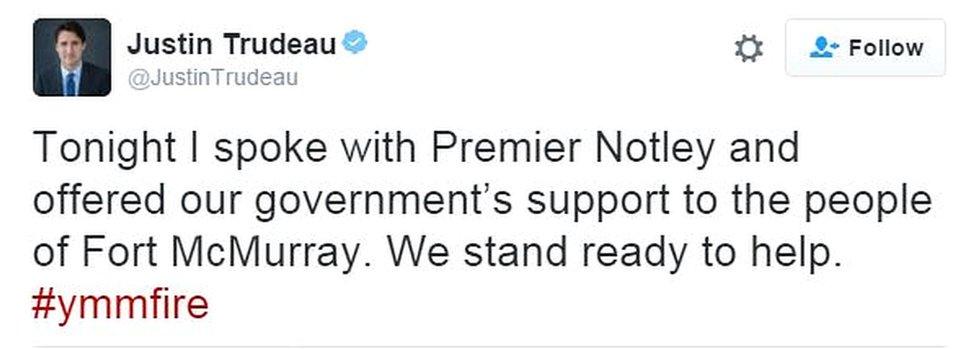
Fort McMurray is a major centre of Canada's oil sands industry - with vast oil reserves - and a major evacuation of staff was ordered.
Suncor Energy said its main plant was so far safe but crude production was being cut.
Shell Canada said it was opening its camp to evacuees.
Canada Post has suspended all deliveries to Fort McMurray.
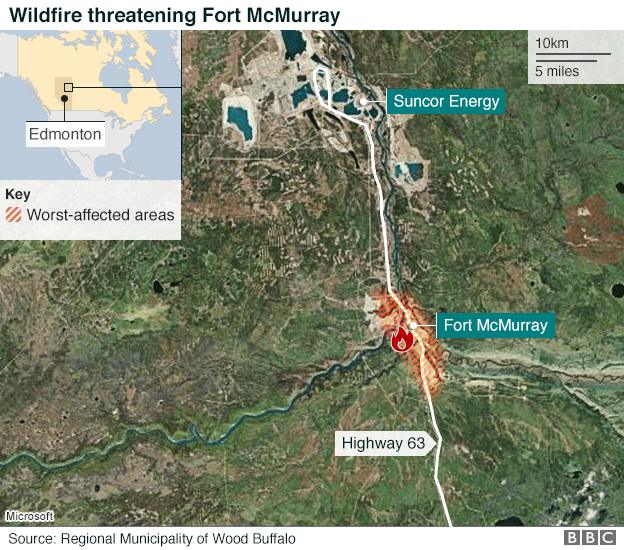

Fort McMurray: Canada's 'manliest' city
On its tourism website, external, Fort McMurray describes itself as the "gateway to the north" - a region which is home to the third largest reserves of oil in the world behind Saudi Arabia and Venezuela.
It may be remote, but Fort McMurray's proximity to Canada's rich oil sands has helped it to become a hugely prosperous place, drawing oil workers from across the world.
It is not strictly speaking a city, but such has become Fort McMurray's importance in the region that it is commonly referred to as one.
Canada's National Post, external called Fort McMurray "Canada's manliest city" where men outnumber women by roughly three to two.
- Published4 May 2016
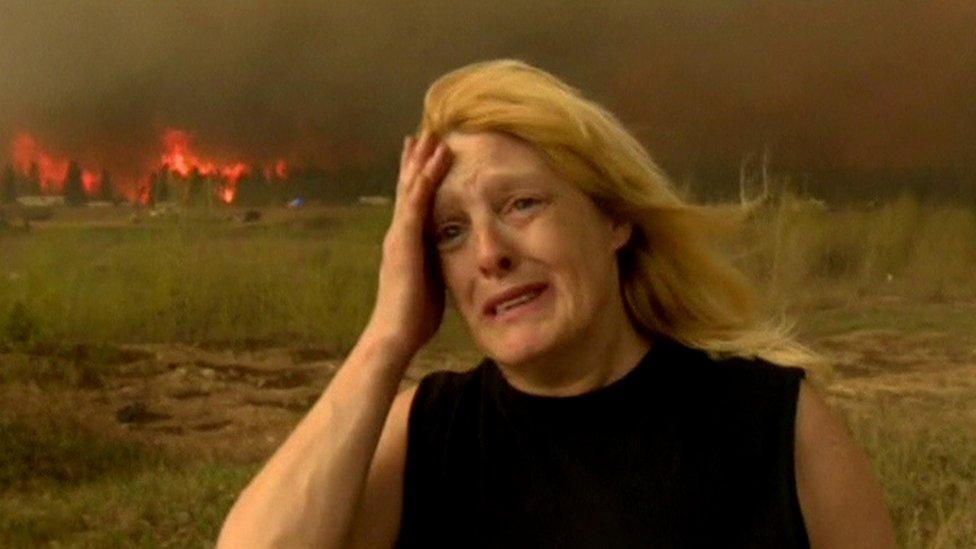
- Published4 May 2016
- Published4 May 2016
